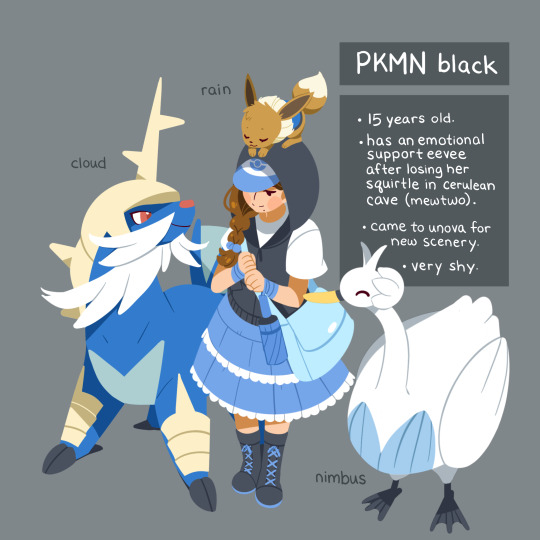#nursing institute
Explore tagged Tumblr posts
Text
Which is the Top Nursing College in Bihar?
Bihar, a rapidly growing hub for medical and paramedical education, offers several reputable institutions for aspiring nursing professionals. With a strong focus on quality education, modern facilities, and clinical training, the state has become a prime destination for students seeking a career in nursing. Among the top nursing colleges in Bihar, Mamta Institute of Education, Siwan, AIHE Professional Institute, Mathiyapur, Patna, and Ambedkar College of Education, Sasaram stand out for their excellence in nursing education.
In this article, we’ll explore what makes these institutions the best choices for students pursuing nursing in Bihar.
1. Mamta Institute of Education, Siwan
The Mamta Institute of Education, Siwan is a leading nursing college in Bihar known for its quality education and student-centered approach. The college offers GNM (General Nursing and Midwifery) and B.Sc Nursing programs designed to equip students with both theoretical and practical nursing skills.
Why Choose Mamta Institute of Education, Siwan?
Experienced Faculty: The college has a team of highly qualified and experienced faculty members.
Modern Infrastructure: Well-equipped labs, smart classrooms, and a well-stocked library provide a conducive learning environment.
Clinical Training: Students gain hands-on experience through clinical rotations at reputed hospitals.
Placement Support: The institute has a strong network with healthcare organizations, ensuring promising placement opportunities.

2. AIHE Professional Institute, Mathiyapur, Patna
AIHE Professional Institute, located in Mathiyapur, Patna, is another top contender among nursing colleges in Bihar. Known for its professional approach, AIHE offers nursing courses such as B.Sc Nursing, GNM, and ANM (Auxiliary Nurse Midwifery) programs.
What Sets AIHE Professional Institute Apart?
Industry-Relevant Curriculum: The courses are designed as per the latest industry standards and nursing council guidelines.
Advanced Facilities: The campus includes modern labs, simulation centers, and hostel facilities.
Experienced Faculty and Mentors: Students learn from experts with years of teaching and industry experience.
Internship and Placement Assistance: The college ensures students complete internships at reputed healthcare institutions with job placement support after graduation.
3. Ambedkar College of Education, Sasaram
Located in Sasaram, Bihar, Ambedkar College of Education has earned its place among the best nursing colleges in Bihar due to its focus on holistic development and professional nursing training. The college offers nursing programs that balance theoretical learning with real-world healthcare experience.
Why Consider Ambedkar College of Education, Sasaram?
Comprehensive Curriculum: The college offers a well-structured curriculum emphasizing core nursing concepts, patient care, and hospital management.
State-of-the-Art Labs: Nursing labs equipped with modern tools for practical learning.
Clinical Exposure: Partnerships with multi-specialty hospitals ensure hands-on clinical training.
Career Development Programs: Students receive guidance in professional development, career counseling, and soft-skills training.
Why Choose a Top Nursing College in Bihar?
Pursuing a nursing degree from one of the top nursing colleges in Bihar can significantly impact your career. Here’s why choosing the right college is essential:
Comprehensive Education: Quality education ensures that students gain essential skills and theoretical knowledge.
Clinical Training: The best colleges offer practical training in hospitals, enabling students to work in real-world healthcare environments.
Accreditation and Recognition: Recognized institutions provide degrees approved by the Indian Nursing Council (INC) and Bihar Nursing Council (BNC).
Placement Opportunities: Top colleges have strong placement records, helping students secure jobs in reputed hospitals and healthcare organizations.
How to Choose the Right Nursing College in Bihar?
When selecting the best nursing college in Bihar, consider the following factors:
Accreditation and Approvals: Ensure the college is recognized by INC, BNC, and other relevant bodies.
Course Offerings: Check if the programs align with your career goals (ANM, GNM, B.Sc Nursing).
Infrastructure: Look for well-equipped labs, libraries, and clinical facilities.
Placement Records: Research the college’s placement success and tie-ups with healthcare organizations.
Student Support Services: Consider mentorship programs, counseling, and skill development initiatives.
Top Nursing Colleges in Bihar for Quality Education and Career Success
If you're looking for the best nursing colleges in Bihar, several reputed institutions offer exceptional nursing education and career opportunities. Among the top nursing colleges in Siwan, the Mamta Institute of Education Siwan stands out for its quality training and modern facilities. Similarly, the AIHE Professional Institute Patna and Ambedkar College of Education Sasaram are renowned for their comprehensive nursing programs, including GNM Nursing in Bihar and B.Sc Nursing Colleges in Bihar. Students interested in nursing course admission in Bihar can benefit from these colleges’ strong academic frameworks, hands-on clinical training, and excellent Bihar nursing college placement records, ensuring a promising career after B.Sc Nursing in Bihar.
Conclusion
If you're searching for the top nursing colleges in Bihar, institutions like Mamta Institute of Education, Siwan, AIHE Professional Institute, Mathiyapur, Patna, and Ambedkar College of Education, Sasaram are excellent options. These colleges are known for their high academic standards, clinical training, and career-oriented programs.
Choose the right college that fits your career goals, and take the first step toward a successful career in nursing. With the increasing demand for qualified healthcare professionals, pursuing a nursing degree from one of these reputed institutions will open up numerous job opportunities in India and abroad.
0 notes
Text

Best Nursing Institute in West Bengal | Rampurhat Nursing Institution
The Nursing Institute stands as a beacon of excellence in healthcare education, dedicated to training compassionate and skilled nurses. With state-of-the-art facilities and experienced faculty, it offers comprehensive programs that blend theoretical knowledge with hands-on practice. Students engage in rigorous coursework, clinical rotations, and simulations, preparing them for diverse medical settings. The institute fosters a supportive environment, encouraging critical thinking, empathy, and professional growth. Graduates emerge as competent, confident healthcare professionals, ready to make a difference in patient care. The Nursing Institute’s commitment to excellence ensures its place at the forefront of nursing education and healthcare innovation.
The best nursing institute in West Bengal is widely regarded as the College of Nursing, Rampurhat Nursing Institution, located in Birbhum. Renowned for its academic excellence and state-of-the-art facilities, the institute stands as a premier destination for aspiring nurses.
Established with a mission to cultivate skilled and compassionate healthcare professionals, the College of Nursing offers a range of programs including B.Sc. Nursing, M.Sc. Nursing, and various diploma courses. The curriculum is designed to blend rigorous academic coursework with practical, hands-on training. Students gain invaluable experience through clinical rotations in affiliated hospitals, ensuring they are well-prepared for real-world challenges.
The faculty at the College of Nursing consists of experienced educators and practitioners who provide personalized guidance and mentorship. The institute’s modern infrastructure includes advanced simulation labs, well-equipped classrooms, and a resourceful library, all of which contribute to a conducive learning environment.
Beyond academics, the College of Nursing emphasizes holistic development. Various workshops, seminars, and community outreach programs are organized to enhance students' skills and community service commitment.
Graduates from the College of Nursing, Rampurhat Nursing Institution, are highly sought after in the healthcare industry, known for their competence, compassion, and dedication to patient care. The institute’s unwavering commitment to excellence makes it the best choice for nursing education in West Bengal.
#Best Nursing Institute in West Bengal#Top Nursing Institute in West Bengal#Nursing Institute in West Bengal#Top Nursing Institute#Nursing Institute#Rampurhat Nursing Institution
1 note
·
View note
Text

0 notes
Text
Nurses whose shitty boss is a shitty app

If you'd like an essay-formatted version of this post to read or share, here's a link to it on pluralistic.net, my surveillance-free, ad-free, tracker-free blog:
https://pluralistic.net/2024/12/17/loose-flapping-ends/#luigi-has-a-point

Operating a business is risky: you can't ever be sure how many customers you'll have, or what they'll show up looking for. If you guess wrong, you'll either have too few workers to serve the crowd, or you'll pay workers to stand around and wait for customers. This is true even when your "business" is a "hospital."
Capitalists hate capitalism. Capitalism is defined by risk – like the risk of competitors poaching your customers and workers. Capitalists all secretly dream of a "command economy" in which other people have to arrange their affairs to suit the capitalists' preferences, taking the risk off their shoulders. Capitalists love anti-competitive exclusivity deals with suppliers, and they really love noncompete "agreements" that ban their workers from taking better jobs:
https://pluralistic.net/2023/04/21/bondage-fees/#doorman-building
One of the sleaziest, most common ways for capitalists to shed risk is by shifting it onto their workers' shoulders, for example, by sending workers home on slow days and refusing to pay them for the rest of their shifts. This is easy for capitalists to do because workers have a collective action problem: for workers to force their bosses not to do this, they all have to agree to go on strike, and other workers have to honor their picket-lines. That's a lot of chivvying and bargaining and group-forming, and it's very hard. Meanwhile, the only person the boss needs to convince to screw you this way is themself.
Libertarians will insist that this is impossible, of course, because workers will just quit and go work for someone else when this happens, and so bosses will be disciplined by the competition to find workers willing to put up with their bullshit. Of course, these same libertarians will tell you that it should be legal for your boss to require you to sign a noncompete "agreement" so you can't quit and get a job elsewhere in your field. They'll also tell you that we don't need antitrust enforcement to prevent your boss from buying up all the businesses you might work for if you do manage to quit.
In practice, the only way workers have successfully resisted being burdened with their bosses' risks is by a) forming a union, and then b) using the union to lobby for strong labor laws. Labor laws aren't a substitute for a union, but they are an important backstop, and of course, if you're not unionized, labor law is all you've got.
Enter the tech-bro, app in hand. The tech-bro's most absurd (and successful) ruse is "it's not a crime, I did it with an app." As in "it's not money-laundering, I did it with an app." Or "it's not a privacy violation, I did it with an app." Or "it's not securities fraud, I did it with an app." Or "it's not price-gouging, I did it with an app," or, importantly, "it's not a labor-law violation, I did it with an app."
The point of the "gig economy" is to use the "did it with an app" trick to avoid labor laws, so that bosses can shift risks onto workers, because capitalists hate capitalism. These apps were first used to immiserate taxi-drivers, and this was so successful that it spawned a whole universe of "Uber for __________" apps that took away labor rights from other kinds of workers, from dog-groomers to carpenters.
One group of workers whose rights are being devoured by gig-work apps is nurses, which is bad news, because without nurses, I would be dead by now.
A new report from the Roosevelt Institute goes deep on the way that nurses' lives are being destroyed by gig work apps that let bosses in America's wildly dysfunctional for-profit health care industry shift risk from bosses to the hardest-working group of health care professionals:
https://rooseveltinstitute.org/publications/uber-for-nursing/
The report's authors interviewed nurses who were employed through three apps: Shiftkey, Shiftmed and Carerev, and reveal a host of risk-shifting, worker-abusing practices that has nurses working for so little that they can't afford medical insurance themselves.
Take Shiftkey: nurses are required to log into Shiftkey and indicate which shifts they are available for, and if they are assigned any of those shifts later but can't take them, their app-based score declines and they risk not being offered shifts in the future. But Shiftkey doesn't guarantee that you'll get work on any of those shifts – in other words, nurses have to pledge not to take any work during the times when Shiftkey might need them, but they only get paid for those hours where Shiftkey calls them out. Nurses assume all the risk that there won't be enough demand for their services.
Each Shiftkey nurse is offered a different pay-scale for each shift. Apps use commercially available financial data – purchased on the cheap from the chaotic, unregulated data broker sector – to predict how desperate each nurse is. The less money you have in your bank accounts and the more you owe on your credit cards, the lower the wage the app will offer you. This is a classic example of what the legal scholar Veena Dubal calls "algorithmic wage discrimination" – a form of wage theft that's supposedly legal because it's done with an app:
https://pluralistic.net/2023/04/12/algorithmic-wage-discrimination/#fishers-of-men
Shiftkey workers also have to bid against one another for shifts, with the job going to the worker who accepts the lowest wage. Shiftkey pays nominal wages that sound reasonable – one nurse's topline rate is $23/hour. But by payday, Shiftkey has used junk fees to scrape that rate down to the bone. Workers have to pay a daily $3.67 "safety fee" to pay for background checks, drug screening, etc. Nevermind that these tasks are only performed once per nurse, not every day – and nevermind that this is another way to force workers to assume the boss's risks. Nurses also pay daily fees for accident insurance ($2.14) and malpractice insurance ($0.21) – more employer risk being shifted onto workers. Workers also pay $2 per shift if they want to get paid on the same day – a payday lending-style usury levied against workers whose wages are priced based on their desperation. Then there's a $6/shift fee nurses pay as a finders' fee to the app, a fee that's up to $7/shift next year. All told, that $23/hour rate cashes out to $13/hour.
On top of that, gig nurses have to pay for their own uniforms, licenses, equipment and equipment, including different colored scrubs and even shoes for each hospital. And because these nurses are "their own bosses" they have to deduct their own payroll taxes from that final figure. As "self-employed" workers, they aren't entitled to overtime or worker's comp, they get no retirement plan, health insurance, sick days or vacation.
The apps sell themselves to bosses as a way to get vetted, qualified nurses, but the entire vetting process is automated. Nurses upload a laundry list of documents related to their qualifications and undergo a background check, but are never interviewed by a human. They are assessed through automated means – for example, they have to run a location-tracking app en route to callouts and their reliability scores decline if they lose mobile data service while stuck in traffic.
Shiftmed docks nurses who cancel shifts after agreeing to take them, but bosses who cancel on nurses, even at the last minute, get away at most a small penalty (having to pay for the first two hours of a canceled shift), or, more often, nothing at all. For example, bosses who book nurses through the Carerev app can cancel without penalty on a mere two hours' notice. One nurse quoted in the study describes getting up at 5AM for a 7AM shift, only to discover that the shift was canceled while she slept, leaving her without any work or pay for the day, after having made arrangements for her kid to get childcare. The nurse assumes all the risk again: blocking out a day's work, paying for childcare, altering her sleep schedule. If she cancels on Carerev, her score goes down and she will get fewer shifts in the future. But if the boss cancels, he faces no consequences.
Carerev also lets bosses send nurses home early without paying them for the whole day – and they don't pay overtime if a nurse stays after her shift ends in order to ensure that their patients are cared for. The librarian scholar Fobazi Ettarh coined the term "vocational awe" to describe how workers in caring professions will endure abusive conditions and put in unpaid overtime because of their commitment to the patrons, patients, and pupils who depend on them:
https://www.inthelibrarywiththeleadpipe.org/2018/vocational-awe/
Many of the nurses in the study report having shifts canceled on them as they pull into the hospital parking lot. Needless to say, when your shift is canceled just as it was supposed to start, it's unlikely you'll be able to book a shift at another facility.
The American healthcare industry is dominated by monopolies. First came the pharma monopolies, when pharma companies merged and merged and merged, allowing them to screw hospitals with sky-high prices. Then the hospitals gobbled each other up, merging until most regions were dominated by one or two hospital chains, who could use buyer power to get a better deal on pharma prices – but also use seller power to screw the insurers with outrageous prices for care. So the insurers merged, too, until they could fight hospital price-gouging.
Everywhere you turn in the healthcare industry, you find another monopolist: pharmacists and pharmacy benefit managers, group purchasing organizations, medical beds, saline and supplies. Monopoly begets monopoly.
(Unitedhealthcare is extraordinary in that its divisions are among the most powerful players in all of these sectors, making it a monopolist among monopolists – for example, UHC is the nation's largest employer of physicians:)
https://www.thebignewsletter.com/p/its-time-to-break-up-big-medicine
But there two key stakeholders in American health-care who can't monopolize: patients and health-care workers. We are the disorganized, loose, flapping ends at the beginning and end of the healthcare supply-chain. We are easy pickings for the monopolists in the middle, which is why patients pay more for worse care every year, and why healthcare workers get paid less for worse working conditions every year.
This is the one area where the Biden administration indisputably took action, bringing cases, making rules, and freaking out investment bankers and billionaires by repeatedly announcing that crimes were still crimes, even if you used an app to commit them.
The kind of treatment these apps mete out to nurses is illegal, app or no. In an important speech just last month, FTC commissioner Alvaro Bedoya explained how the FTC Act empowered the agency to shut down this kind of bossware because it is an "unfair and deceptive" form of competition:
https://pluralistic.net/2024/11/26/hawtch-hawtch/#you-treasure-what-you-measure
This is the kind of thing the FTC could be doing. Will Trump's FTC actually do it? The Trump campaign called the FTC "politicized" – but Trump's pick for the next FTC chair has vowed to politicize it even more:
https://theintercept.com/2024/12/18/trump-ftc-andrew-ferguson-ticket-fees/
Like Biden's FTC, Trump's FTC will have a target-rich environment if it wants to bring enforcement actions on behalf of workers. But Biden's trustbusters chose their targets by giving priority to the crooked companies that were doing the most harm to Americans, while Trump's trustbusters are more likely to give priority to the crooked companies that Trump personally dislikes:
https://pluralistic.net/2024/11/12/the-enemy-of-your-enemy/#is-your-enemy
So if one of these nursing apps pisses off Trump or one of his cronies, then yeah, maybe those nurses will get justice.

Image: Cryteria (modified) https://commons.wikimedia.org/wiki/File:HAL9000.svg
CC BY 3.0 https://creativecommons.org/licenses/by/3.0/deed.en
#pluralistic#nursing#labor#algorithmic wage discrimination#uber for nurses#wage theft#gig economy#accountability sinks#precaratization#health#health care#usausausa#guillotine watch#monopolies#ai#roosevelt institute#shiftkey#shiftmed#carerev
415 notes
·
View notes
Note
*yeets in and does a barrel roll* what were/are the home life's of Ansy and Ikrit back when they were kids and now as adults ☆^☆
—Rando Anon
Aw, little Ansy & Ikrit?


(Yes, Ansy is a little older of the two! >u<)
Well, Ikrit was born in Fallarbor Town, Hoenn near Mt. Chimney & Meteor Falls. He lived there with his parents & much older brother, stargazing & studying meteorites. He was already a capable trainer, taking on Hoenn’s PKMN League along with Team Aqua & Kyogre with the help of his “childhood friend” Rayquaza when he was just 13.
Apart from that, I’d say his home life was pretty normal, studying under Professor Kozmo & exploring Meteor Falls. 💫

Ansy’s home life started off pretty happy - she was born in Cerulean City, Kanto with her parents & 3 siblings (eldest daughter, second child). When she was 10, she & her siblings got their starter Pokémon, the 3 older kids setting off on their own journeys.
After a very traumatic experience in Cerulean Cave near the start of her journey, then their parents passing, they quit their journeys early, & just stayed home with their mother’s family until Ansy decided to stay with their father’s family in Unova for a change in scenery. ✈️


From the experiences she had there & the friends she made along the way (& of course, Rain), she really started to blossom & heal. That’s what helped her take on Team Plasma & earn the respect of Reshiram as the Hero of Truth.
She & her siblings eventually grew up & healed, going on their own paths. They chose to stay in Kanto while Ansy traveled around, trying new things, & eventually met Ikrit in Galar.


When they married, they settled down in Unova. I’m thinking Mistralton City - close to the airport for when Ikrit has to take an annual trip to Hoenn for his job with Professor Cozmo (or when they go on a new adventure!), & with the open skies, they both had a good view of the stars (Ikrit) & the weather (Ansy) 🌃🌧️
They just live a peaceful, happy little life together - sometimes on the road, sometimes at work, but always coming home to their cozy place where they live with their Pokémon. 🩵
#ask#pokemon#my ocs#trainersona (sorta - my story was different than Ansy’s)#honestly not sure what kind of job Ansy has - she’s kind of bounced around different jobs over the years#Lifeguard / Nurse / Gardener / etc.#It’d be cool if she worked at Unova’s Weather Institute#If there was a job there that was pretty quiet & doesn’t involve a lot of numbers lol
151 notes
·
View notes
Note
can you elaborate on why you don't think nursing homes should exist? I'm genuinely curious, not trying to engage in bad faith, but i do feel like many elders do need a level of medical care that can't be provided well in a home environment, and benefit socially from being surrounded by their peers. is it more a matter of eliminating the huge staff-"client"(-billpayer, generally a younger relative) power differentials and potential for abuse that exists there, the way nursing homes tend to be relatively isolated from the surrounding community & many restrict certain freedoms, or is there something else more inherent to the structure (i.e., incapable of being reformed or mitigated) that I'm missing? i guess i'm wondering how different a more just model for elder care would look from nursing homes
Yeah, it's everything you said -- nursing homes inherently restrict their residents' freedoms (how many would pass the burrito test?), don't see the residents as the decision-making clients, infantilize and segregate their residents, etc.
As for socializing with their peers, if older disabled people lived among the general population, they could still socialize with other older disabled people if they wanted to, and also with younger people, abled people, and others. "This population that has been systemically excluded from society should live among themselves in a congregate setting so they can socialize" isn't a particularly good argument for nursing homes; it's an argument against the ageist/ableist segregation that exists in the rest of society.
Could nursing homes be reformed/mitigated? I mean, I'm a strong harm reductionist; I believe every harmful institution should be reformed and mitigated as much as possible. That might mean more freedom for residents, more privacy for residents, more transportation to and from other places in the community. But if a nursing home were "reformed" to the point that it was no longer harmful -- if it no longer exerted coercive control over its residents, if its residents had the same freedom and privacy and autonomy and freedom of movement as anyone in the outside world -- it would functionally cease to be a "nursing home" and would just be... well, an apartment building. Or, if it's an apartment building specifically for older disabled people, without the coercive control, a "retirement community" (although sometimes coercive-control nursing homes are also called "retirement communities" so who knows?).
Home and community based services for disabled people, if properly funded, can replicate most of the assistance a nursing home provides -- now, I do say most, but people who need multiple-times-a-day medical care from a medical provider might choose a living situation that involves specific proximity to medical care. That doesn't mean a nursing home; it might mean, for example, an apartment building near a hospital that caters to people undergoing regular treatment. But it's important that many nursing home residents don't need daily medical care from medical providers. They they need accessible assistance with activities of daily living, which can easily be made accessible outside a medicalized setting, and, in particular, without the coercive control of a nursing home.
Or, short version (sorry, I have a fever) -- the problem with nursing homes is the coercive control. Fund home and community based services. Hire CNAs and install accessible features in the homes of disabled people who need them with the money governments and families can save by abolishing nursing homes. Not everyone in a nursing home is there because they need medical treatment, but even for those who do, there are ways to situate housing and medical needs in proximity to each other that don't involve residents being forcibly drugged or given a bedtime or needing permission to have sex. Let Grandpa fuck (if he wants to).
#home and community based services#asks#send asks#anti institution#anti nursing home#bodily autonomy
84 notes
·
View notes
Text
All staff and visitors,
Be advised! While the NHS Blood Donation event was a success, and Tim didn’t have to call the police even a single time, unfortunately we have just received word that the vehicle carrying our donations has gone missing en route to the NHS blood centre.
Please keep an eye out for a red and white NHS blood donation van, number plate WV61 TTD, driven by two men wearing dark blue overalls.
#magposting#be advised#they were so nice as well. i felt faint after and one of them gave me an extra cup of juice#rest in peace nice cockney nurses you probably got hijacked by some Magnus Institute bullshit#tmagpod#the magnus archives#tma#tmagp#the magnus institute#breekon and hope
80 notes
·
View notes
Text
#afi#american film institute#movie characters#villains#movie polls#hannibal lecter#norman bates#darth vader#wicked witch of the west#nurse ratched#evil queen#william friedkin#snow white and the seven dwarfs#one flew over the cuckoo's nest#double indemnity#fatal attraction#it’s a wonderful life#the wizard of oz#star wars#the empire strikes back#psycho 1960#the silence of the lambs#anthony hopkins#anthony perkins#margaret hamilton#louise fletcher#barbara stanwyck#glenn close#wicked witch#linda blair
14 notes
·
View notes
Text
METHUEN, Mass. — Union nurses at Dana-Farber Cancer Institute-Merrimack Valley are holding a one-day strike over their contract status. About three dozen nurses picketed at the facility in Methuen until 5 p.m. Wednesday over better pay and benefits, closer to what their colleagues in Boston make. Union nurses said executives at Dana-Farber have "refused to make reasonable compromises" and threatened to lock nurses out after the strike is over. They said the hospital is now spending money on replacement nurses.
#news#nurses strike#nurses' strike#healthcare workers#healthcare industry#dana-farber cancer institute
35 notes
·
View notes
Text
kinda thinking about becoming a firefighter
#been looking to get out of retail and my local community college* offers a course for it#* the irish equivalent but its less relatable. its an institute of further education#but i could study and train to be a firefighter which could be pretty fuckin good#like i dropped out of nursing#but damn. i can do shit
10 notes
·
View notes
Text

0 notes
Text
Thousands with disabilities subjected to segregation in these three states
Michael Loria
USA TODAY

A family wonders how a cousin “slipped through the cracks” and wound up in a state nursing facility not long after her 18th birthday; a mother wonders how she lost her daughter to the same system; and a woman in her late 50s longs to leave a state facility to see her family again.
These are among the findings of an extensive Department of Justice investigation into how three states – Missouri, Utah and Nebraska – illegally segregated people with mental health disabilities. Federal prosecutors found that the states are unnecessarily institutionalizing thousands of people in state facilities, cutting them off from family and the rest of society.
The investigations date back to March 2021 based on numerous complaints.
“I have a dream that one day I will be free. Free to live on my own, free to live within my community, free to have overnight visits with my grandchildren,” says Angela, the woman in her late 50s, in the Missouri report issued by the DOJ. The federal report quotes people by their first name only. “Free to not be told who I can associate with, free to not have someone place me in a nursing home and leave me, without any regard to my well-being mentally and physically, most of all just free to live my life.”
The investigations found widespread violations of the Americans with Disabilities Act, which says adults with disabilities must live in as integrated of settings as possible.
"This is about weaving people with disabilities into the tapestry of American life," Assistant Attorney General Kristen Clarke of the Justice Department’s Civil Rights Division told USA TODAY. "This is about bringing an end to the unnecessary segregation and isolation of people with disabilities in our country. And it's about recognizing their dignity, their autonomy and their independence."
The investigations were published around the 25th anniversary of the 1999 Olmstead v. L.C. Supreme Court decision which upheld the principle that public entities must provide community-based services to people with disabilities to prevent segregation.
"Our work is about breathing life into the ADA's integration mandate," Clarke said. "We hope that our enforcement work sends a loud message to jurisdictions about the steps that they must take to comply with the law, and specifically to comply with the ADA."
The office of Missouri Gov. Michael L. Parson did not respond to requests for comment. The state cooperated with the Justice Department’s investigation, according to the report.
The report from the DOJ is one in a slew of investigations that have also gone after Utah and Nebraska for similar practices.
A federal investigation into practices in Utah found that the state is segregating people with disabilities by placing them in isolated “warehouse-like” facilities for day programs; an investigation into Nebraska’s practices found the state was also placing people with disabilities into segregated day programs and segregated living facilities.
In a statement, Utah’s Department of Health and Human Services said it’s committed to improving state treatment of people with disabilities. Nebraska’s Department of Health and Human Services said it was disappointed with the Justice Department’s "allegations,” adding that Gov. Jim Pillen’s administration had already shown its commitment to improving care for people with disabilities.
'Highly restrictive and controlled' in Missouri
The 45-page DOJ report on Missouri’s treatment of people with mental disabilities details how the state systematically funneled people into state nursing facilities, even though almost none needed even short-term stays.
The facilities come with skilled caregivers and are commonly known as nursing homes. But more than half of the people covered in the report were under 65 and didn’t require the care offered. The people covered in the report had been inside them for at least three years on average, and around half were clustered at just 39 of the state’s 500 nursing facilities.
The people interviewed in the report describe prison-like conditions at the facilities.
“They are highly restrictive and controlled settings that isolate and segregate residents by severely limiting or entirely cutting off their relationships with loved ones and their community,” the report says, “preventing them from interacting with non-disabled people.”
The isolation inhibits residents from pursuing work or education, which the report called “hallmarks of a segregated institution.”
“My son had a life before they took him there and now, he has nothing,” the mother of a man named Kelvin is quoted in the report as saying.
The DOJ investigation was based on reviewing state documents, data and interviews with dozens of state officials and county officials who are appointed guardians for people with disabilities, plus 130 interviews with people directly impacted by the state’s practices. Investigators inspected over 60 sites, including psychiatric hospitals and sites housing people with mental health disabilities.
Rules, according to people who described the facilities as like jail, included no telephone use, mail, freedom to leave and just one hour outside per day.
How do people end up there?
Federal officials found Missouri relies on state institutions more than almost any other state. Nearly 3,300 people without Alzheimer’s or dementia have been in such institutions for over 100 days as of March 2023, according to the report. They hold an average of 95 residents but range in size from 47 to 225 people.
Missouri places people with bipolar disorder or schizophrenia in its facilities at one of the highest rates in the country. At 10 of the 39 facilities, adults with either bipolar or schizophrenia diagnoses account for 82% to 90% of the population in 2021.
The people covered in the report have “low care needs.” Nationally, low-care residents account for 9% of people in nursing facilities; in Missouri, they account for 25%. The rate of people under 65 is more than twice the national rate of 18%.
The report attributed the widespread practice to the state’s court-appointed guardianship system, which it called a “pipeline to a nursing facility.” The pattern in Missouri is that people with mental health disabilities cycle in and out of psychiatric hospitals; they get assigned a guardian, either family or a public administrator because they’re found to be unable to care for themselves; and then, frequently, the guardian places the person in state facilities.
Thousands have ended up in nursing facilities as a result of guardianship. One unnamed person cited in the report called the court-mandated oversight a “sentence to be locked in a (nursing facility).”
Guardians are also allowed to set limits beyond those set by the actual facilities.
“Prisoners have more rights than a person under guardianship has,” said a resident named Angela. “Anything I do or have pleasure in, like smoking, can be taken away (at) the whim of my guardian.”
Alternatives to institutions
The people in Missouri institutions instead need community-based services, according to the report, which allow them to live in their communities in compliance with the Americans with Disabilities Act. All are offered in the Midwestern state but not widely.
The alternatives, the report says, include:
◾ Assertive community treatment: an evidence-based model where people with mental health disabilities are treated by people trained in psychiatry, social work, nursing and other fields.
◾ Permanent supportive housing: another evidence-based model where the person with a disability is limited to spending up to 30% of their income on rent for housing that’s in a community or building not reserved for people with disabilities.
◾ Peer support service: A type of mental health care provided by people with experience with mental health issues.
◾ Mobile crisis services: Mental health providers respond to mental health emergencies like 911 intending to divert people from psychiatric hospitalization.
◾ Crisis stabilization services: These community settings serve as an alternative to emergency rooms for people experiencing mental health crises and aim to connect them to lasting care.
Utah investigation
The DOJ found Utah was “segregating” people with disabilities, a clear violation of the Americans with Disabilities Act.
The federal investigators found the state has a practice of funneling people with disabilities into programs in “warehouse-like” settings in isolation from people without disabilities. In such settings, they aren't allowed to choose how to spend their time and cannot partake in typical community activities, including shopping, exercising, or meeting friends.
At the warehouses, they perform repetitive tasks like sorting through recycling, shredding paper, or folding laundry, often for less than minimum wage, the report says. The programs tend to target young people with disabilities who are transitioning out of school.
The report found the wait for state vocational programs providing long-term job support for people with disabilities is over five years long.
The Utah investigation began in March 2021 and was published this week.
Joe Dougherty, a spokesperson for the state’s Department of Health and Human Services, issued a statement in response.
“While nobody likes hearing that their programs still have barriers for people to receive services, the state of Utah sees people with disabilities as critical citizens in our state and is committed to improving our service system,” he said. “The benefit is reciprocal, as people in the community benefit from the talents, perspectives and experiences of people with disabilities.”
Nebraska pushes back
The DOJ’s investigation in Nebraska focused on people with serious mental illness. It found the state was also funneling people into segregated day programs and living facilities, rather than programs aimed at promoting integration.
State law, according to the report, mandates there be enough community-based programs to ensure people with mental illness can work and live independently. But around 5,000 people live in nursing facilities, many exclusively for people with disabilities.
Nebraska’s Department of Health and Human Services pushed back against what it called “allegations.”
Spokesperson Jeff Powell touted the creation of Certified Community Behavioral Health Clinics where anyone can get mental health care; the development of better programs to help people get disability accommodations; and the fact that it already offered employment and supportive housing programs.
“Pointedly, the DOJ concedes that the programs desired by the federal government already exist in Nebraska today,” Powell said. “DHHS intends to resolve this matter as expeditiously as possible and in a manner consistent with law and the best interests of the people of Nebraska
#USA Today#American disability Act abuse#nursing institutions in place of psychiatric hospitals#rights being taken away#prisoners have more rights wtf#Missouri#Utah#Nevada#chronic illness#spoonies beware#forties beware
2 notes
·
View notes
Text
just remembered about the "friend" who called me an idiot and stopped talking to me because i refused to include nurses in acab.
like...yeah these two groups have power over the vulnerable that they will abuse. yes nurses can and will harm people. tell me. which one of these groups has state sponsored guns, riot gear, and legal invulnerability against being brought to justice??? which one of these professions was invented to recapture escaped slaves????
#also i simply don't believe that you can paint all nurses with a broad brush#like i have met plenty of nurses (and i say this as someone with mega medical trauma)#who were genuinely good people who did enormous amounts of good#who did their jobs as they were intended to be done#who TOOK CARE OF PEOPLE#is it a profession people are likely to abuse? sure absolutely#are there massive institutional problems in place with the usamerican healthcare system? also yes#and i do want to say i think the abuses that nurses go through are horrible#but it is totally possible to just. be a good nurse#i don't think it's EASY but.#like#literally it's 100% possible#thane.txt
8 notes
·
View notes
Note
Oh, one thing I forgot to mention; we did have in-home care at one point but the nurse could only come in for a couple hours or so a day so my mom could run errands, and we couldn’t afford anything beyond that. He’d get aggressive towards the nurses as well because he didn’t know why they were there and often refuse any kind of care. This was in our own home. I feel like his case would be the same regardless of if he was in a nursing home or not. What should be done in the case of those kinds of patients who refuse any care and get aggressive like that? I agree people should have more freedom in this scenario but he could’ve legitimately hurt himself or someone else.

I'm combining these two-part questions into one answer.
So when people have full-time in-home assistance, that usually doesn't mean a live-in assistant who sleeps there. For one thing, as you point out, a disabled person might need assistance at night too. In-home assistants work in shifts. There would be different people at different times of the day.
And yeah, the fact that most people can't afford it and most insurance won't pay for it, but will pay for nursing homes, is exactly the institutional bias that anti-institutionalization advocates lobby against.
Unfortunately, you're definitely correct that in-home services will not "fix" the core disorientation and confusion that usually accompanies dementia and that is usually very uncomfortable (to put it mildly) for the disabled person. Neither will a nursing home. That's why I try to focus on what aspects of a disabled person's discomfort can be environmentally mitigated, in whatever way they can, even if there are ways they can't be.
13 notes
·
View notes
Text
[...] his instincts tell him she is the one thing he cannot ever forget—because the fate of the world sits on his shoulders, but so did Jolyne.
Jotaro during his coma, when he gets back his Stand but not his memory.
word count 942
warnings none? stone ocean spoilers, nothing major
#nurse your most mentally ill patient has escaped the mental institution once again#you evr think abt jotaro unconsciously giving himself a wound that's his daughter's name or are you normal#sincerest apologies#i have published yet another mess of a fic#i'm like a virtual roach i will never leave#kujo jotaro#kujo jolyne#stone ocean#jjba part 6#jjba#jolyne cujoh#jojo no kimyou na bouken#jojo's bizarre adventure#jjba fic#ao3#holly and joseph are ... described#like i never mention their names but. They are There
5 notes
·
View notes